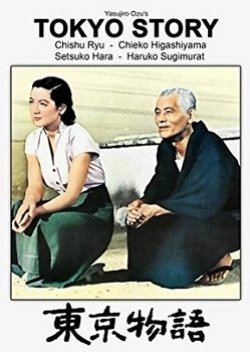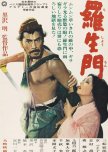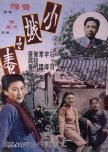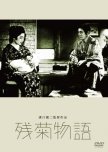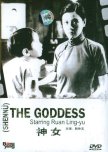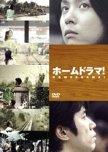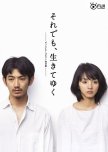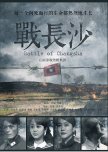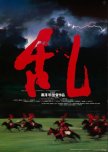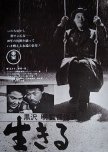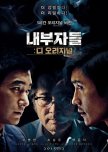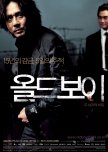
Ultimately, the story is about how children grow apart from the parents and how they can thoughtlessly hurt them.
Was this review helpful to you?

Family is everything, the most important and valuable thing in life.
The first part of the film really did a great job connecting me with the old couple Shukichi and Tomi.Their journey to Tokyo to see their children, but they're kinda push them away, although the children intentions are good to sent them to Atami in hopes of giving the old folks time to calm their minds, but their reason "busy" makes me feel mad, also the old folks didn't felt calm cause you know.. If you have watched it.
Glad there's Noriko, the center of this film Trilogy, she's became a widow here because her husband died in war. Noriko is the only one in Tokyo who treat the old couple very well like she's the real daughter / children of them, even though their relationshis is only in-laws, and in fact, Noriko's belong to freedom.
The old folks "real children" is like a reflection, they're selfish and unable or unwilling to pay attention to their parent, and there are so many children who still behave like that today.
An outpouring session between Mother and Noriko makes my heart squezeed. Noriko's kindness combined with Mother's warmth, a moment that could be the beginning of tears when watching this film.
Then later at the end there is a moment where the father gives a speech to Noriko, words that any parent will say to a person who has married their child and this moment broke my tears, it's warm.
Overall it's the best from Noriko Trilogy.
Was this review helpful to you?

"To lose your children is hard, but living with them isn't always easy either. A real dilemma."
Tokyo Story is the third film of the loosely connected "Noriko Trilogy" and probably the most well known and well-regarded by critics. Family and societal themes are explored extensively in this film as was the case in Late Spring (LS) and Early Summer (ES). Tokyo Story (TS), perhaps, leans a bit more on societal changes in response to the post-WWII industrial boom. The younger generation, clearly, is consumed with work and family matters play second fiddle. In LS and ES, there are societal changes, but the social world is slow paced and lazy as if it is in stupor from the recent war tragedies. In TS, the social world is at a frenetic pace; folks are concerned about getting seats on trains; messengers rush about to deliver telegrams; and hot spring hotels - places typically associated with relaxation - are conveyed as rowdy gambling denizens.Although I may have disapproved of some of the character temperaments in LS and ES to a mild extent, TS introduced the first truly irritating character - Shige who was the eldest daughter of Shukichi and Tomi. Ozu's characters and plots in the Noriko Trilogy tend to be subtle and restrained. Shige's rudeness and obnoxiousness was too plain. And while I don't mind that the character has those traits, their 'in the face' presentation of those traits was distracting. When I read descriptions of TS, reviews, or commentary, I noticed there is an over-generalization that the children in this film did not care about their parents. That's simply too black and white. A close inspection of the characters reveals that the circumstances of the busy children and aging parents are much more complex. In fact, the filmmakers utilize Noriko to elucidate these complexities by asking Noriko to explain to Kyoko, the youngest daughter, the nuances of the family's inter-generational dynamics. Personally, I feel the commentary on family dynamics presented in TS would be have been more effective, and certainly more enjoyable, had Shige been presented as a nuanced character.
Noriko, while still a praiseworthy character in TS, felt the least compelling when compared to Noriko in LS and ES. In TS, her filial piety towards her mother and father in-laws felt slightly forced, even inauthentic. Perhaps the filmmakers and viewers of LS and ES were accustomed to Noriko's temperament across films and would have no problem with this presentation in TS. Yet, viewing Noriko in TS without those prior associations, I stand by the presentation as weaker. Even more so since Noriko of TS was not living near her in-laws nor was she in frequent communication. Playing up her filial piety in contrast to the blood children's selfishness felt inauthentic. It was an unfair presentation of the children to beat us over the head with a point where nuance would have served better.
Despite TS's prestige, I enjoyed this film the least of the three Noriko films. I found myself more conscious of the slow pace of TS compared to LS and ES. It is still a strong film, but it makes me wonder why so many folks seem to place TS at the top of the Trilogy. There are, from a filmcraft perspective, some marked improvements. In TS, the music right off the bat signalled greater complexity and maturity compared to the earlier films. Camerawork was steadier and more varied. There are probably other 'filmmaker' improvements that escape the average viewer's eye. So, I suspect that filmmakers appreciate these advances in craft and rate it highly. But for me, as an average film viewer, the quality of narrative and impact to self was a few steps beyond my viewings of Late Spring and Early Summer.
Lastly, the setting of Late Spring and Early summer was clearly Kamakura; in fact the opening scenes place us at Kita-Kamakura station (a place I've been to). I enjoyed that specificity of location. I could even look up what Kamakura looks like at present if I want. In Tokyo Story, the story took place, loosely, in Tokyo. Well, that's a pretty large area and can mean many places depending on the cultural context. In short, I would have appreciated greater details about the locales of the characters, especially since Shukichi and Tomi were being 'shown around' Tokyo. Yes, we know they go to Akami, which is outside of Tokyo, but within their Tokyo adventure, we get no locations.
Was this review helpful to you?

This review may contain spoilers
"Life is like that"
Tokyo Story is a quintessentially Ozu film. The story about the dissolution of a family was emotional without being dramatic. Every frame was composed with the utmost care as if evoking a painting. Shot from the mat, the camera never moved, only the people, drawing the viewer in for an intimate window into this troubled family’s life.“Be a good son while your parents are alive. None can serve his parents beyond the grave.”
Retired couple, Shukichi and Tomi, make the long, arduous trip from their southern fishing village to Tokyo to visit their children. Due to the distance it has been years since they’ve seen each other. Instead of greeting their parents/grandparents with open arms, everyone seems put out that their lives and households are being disrupted. Shige, the eldest daughter, pawns them off on the couple’s widowed daughter-in-law, Noriko. Unlike their flesh and blood children, Noriko takes the day off and shows them the town, treating them with great care and respect. Afterwards, Shige and her brother Koichi, pool their money and send their parents to a seaside spa. The spa ends up being a loud hangout for young people causing the elderly couple to return to Shige’s the next day. She’s upset that they returned early because she has a party planned leaving the couple literally out on a curb. Noriko takes in her mother-in-law while Shukichi has a reunion with old friends and goes out drinking and reminiscing. Realizing they are a burden on their children, the couple boards the train the next day to go home. They are able to see their middle son who works at the Osaka railroad when Tomi becomes ill on the train and has to disembark there. Satisfied they have seen all of their children for possibly the last time, the parents state that their children may not have lived up to their expectations, but they are better than most leaving them satisfied.
“To lose one’s children is hard, but living with them isn’t easy either.”
Ozu never truly goes into why the children are not only distant but disrespectful as well. The father drank heavily when they were younger, whether that caused a lingering anger he wasn’t telling. Despite Noriko being a dutiful daughter-in-law and widow, her short marriage to Shoji eight years ago was a difficult one for he also drank heavily. Shige grated from beginning to end, always finding fault, never giving an inch. When her husband brings home expensive cakes for her parents, she scolds him that the delicacies are too good for them and then eats the cakes herself! Yet Ozu and the characters simply accept her as she is, never calling her out for her rude behavior. It is what it is.
“Isn’t life disappointing?”
The grown children’s lives are busy as they hustle to make a living in a town with too many people after the war striving for the same thing. Their children reflect the same attitude as their parents, they are rude and disinterested as well. Every generation of the family is disintegrating, held together by memories and tenuous traditions. The father states, “Life is like that.” Death happens. People forget. People move on. Relationships are always in a state of constant flux as people change, suffer, succeed, fail, grow older. Families, like marriages, require emotional upkeep to stay together and relevant, something this family has neglected. Life was also taken for granted, the thought that their parents would always be around. When death visits, the children still can only think of themselves and their lives with only Noriko going out of her way to help. Stay busy, stay moving, and you don’t have to think about the difficult things in life.
“Isn’t life too short?”
Tokyo Story is one of Ozu’s more beautifully shot films, and one that took the viewer beyond a small world. From the parents’ fishing village to Tokyo, we’re taken along with the parents to discover new sights. The music is subtle, just like Ozu, perfectly setting the tone when used. School children sang just as the story needed a bolus of hope. Often only the rhythmic sounds of nature were used or mechanical as with a ticking clock when a character realized all he had was time left. Despite the larger world the characters inhabited his meditative rooms and pauses still reigned supreme. Ozu’s beloved train began the film as the parents journeyed on their last trip to see their children and a train ended the film as a character was freed from her guilt and allowed to embrace a new future.
Everyone ages. Relationships change. Children become parents and then grandparents themselves. Life involves death, irrespective of age. Loneliness is a harsh mistress. I hope Ozu’s assessment that life is disappointing and everyone will eventually not only suffer from alienation but also cause it isn’t inevitable.
2 February 2024
Was this review helpful to you?

